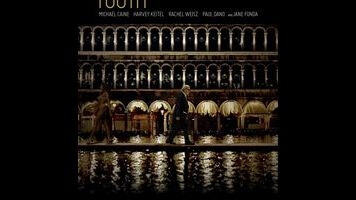More than any other director currently working, with the possible exception of Terrence Malick, Italy’s Paolo Sorrentino conceives his films musically, working with motifs and movements as much as he does with traditional scenes. So it’s no surprise that his latest effort, Youth, is about a famous conductor whose best friend is a famous film director, no less, thereby splitting the difference. Making his second film in English, following 2011’s exceedingly eccentric This Must Be The Place (starring Sean Penn as The Cure’s Robert Smith, more or less), Sorrentino still mostly refuses to compromise. Youth is slightly less garish and bombastic than his Italian pictures (which include The Great Beauty and Il Divo), but it’s no less free-associative, building meaning from juxtapositions that feel largely intuitive. If you’re on Sorrentino’s wavelength, that can feel liberating. If not, “oppressive” might be a better word.
This time, he offers a movie-star turn that’s dignified without also coming across as ludicrous. Michael Caine plays Fred Ballinger, a retired composer vacationing in the Swiss Alps at an incredibly ritzy spa, where the entire movie is set. Early on, a representative for Queen Elizabeth shows up to ask Ballinger to perform his most renowned composition, “Simple Songs,” at Prince Philip’s birthday party, and is politely but firmly refused; the question of whether Ballinger will change his mind provides Youth’s sole concession to traditional narrative. Mostly, the film merely observes him as he spends time with his daughter, Lena (Rachel Weisz); with his longtime director pal, Mick Boyle (Harvey Keitel), who’s at the spa with a team of screenwriters, conceiving his next project; and with a famous actor, Jimmy Tree (Paul Dano), whose preparations for an upcoming role provide the movie’s single best sight gag. Lena is married to Mick’s son, who leaves her mid-film for pop star Paloma Faith (playing herself), but even this potentially melodramatic turn of events receives glancing, amused treatment—just one refrain among many.
Given the title, plus the presence of Caine (age 82) and Keitel (age 76), one might assume that Youth is primarily concerned with senescence. (The European ad campaign tries to make the film look like a dirty-old-man romp, employing a still taken from a brief scene in which Fred and Mick are joined in the spa’s pool by a beautiful naked woman.) The two geezers do spend time talking ruefully about their lengthy shared past and their less-than-glorious present—the latter revolves largely around whether either has managed to take a piss that day, and if so, how many drops they squeezed out—but Sorrentino pays an equal amount of attention to tangential subjects: art, romance, sex, collaboration, family. At one point, Fred hikes over to a hill where a herd of cows are grazing and imagines himself conducting the sounds of nature (featuring more cowbell than Christopher Walken ever dreamed of), and Sorrentino directs Youth in much the same way. It’s a constant flow of images and ideas, organized loosely around a central theme.
This style of filmmaking is so precise, and so intensely rhythmic, that its effects can be difficult to describe in words. In one brief scene, Mick is fielding story ideas from his team of writers, while two of them, a man and a woman (who are falling in love, as yet unbeknownst to themselves, Mick earlier told Fred), yell angrily at each other. Sorrentino shifts focus from the argument to Mick dismissing another writer’s tale of personal woe, prompting the writer to jokingly add, “My mother has polio.” Mick explodes with laughter, and on that explosion, almost before it can register, Sorrentino cuts back to the arguing couple. The content of the scene is less crucial than the placement of the cut and its disruptive/associative nature. That’s how Sorrentino operates. He can push too far for effect, at times—there’s talk of a possible Oscar nomination for Jane Fonda, who shows up to deliver a bitter monologue toward the end, playing Mick’s favorite actress, but her showy cameo clashes badly with the film’s generally light and airy tone. For the most part, though, Youth offers the sort of pleasures suggested by Ballinger’s “Simple Songs.” It’s music for the eyes.









































